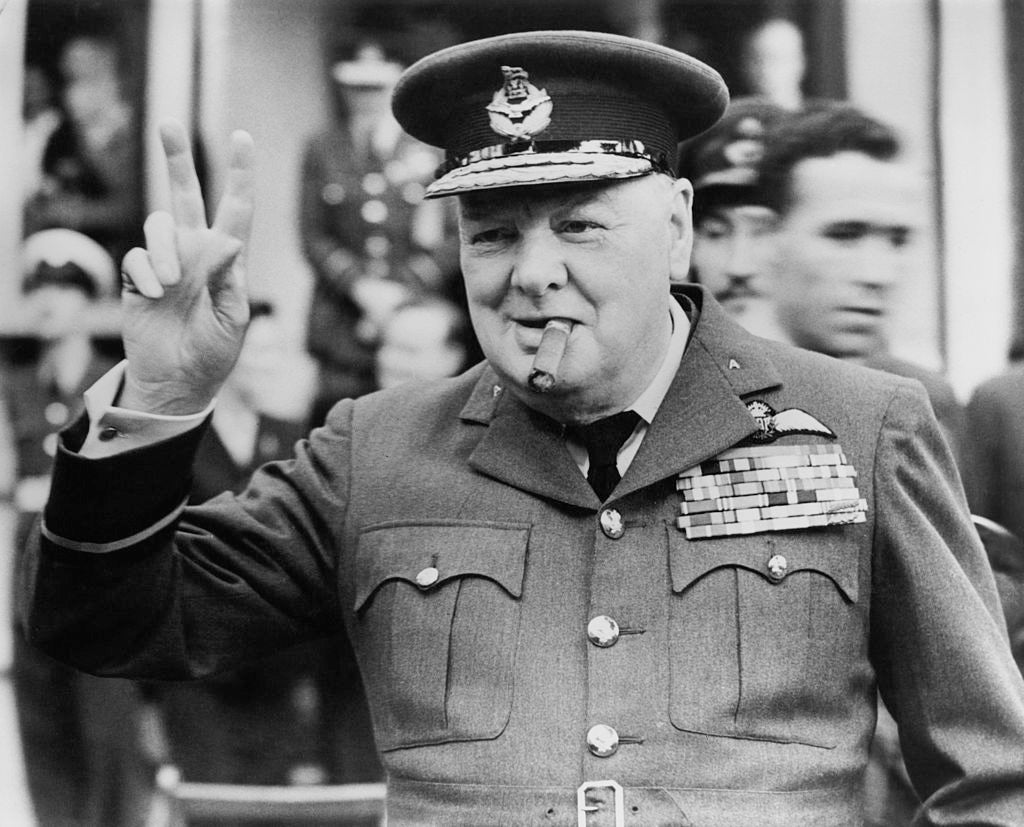Winston Churchill fought to conceal Nazi plans for invasion of Britain, newly discovered files reveal
Captured German telegrams indicate Adolf Hitler's foreign minister, Joachim von Ribbentrop, intended to install Duke of Windsor as king in event of successful conquest

Your support helps us to tell the story
From reproductive rights to climate change to Big Tech, The Independent is on the ground when the story is developing. Whether it's investigating the financials of Elon Musk's pro-Trump PAC or producing our latest documentary, 'The A Word', which shines a light on the American women fighting for reproductive rights, we know how important it is to parse out the facts from the messaging.
At such a critical moment in US history, we need reporters on the ground. Your donation allows us to keep sending journalists to speak to both sides of the story.
The Independent is trusted by Americans across the entire political spectrum. And unlike many other quality news outlets, we choose not to lock Americans out of our reporting and analysis with paywalls. We believe quality journalism should be available to everyone, paid for by those who can afford it.
Your support makes all the difference.Winston Churchill sought to block the release of secret Second World War documents revealing Nazi plans to install the Duke of Windsor as king in the event of a successful German invasion, according to newly-released government files.
Captured German telegrams showed foreign minister Joachim von Ribbentrop hoped to lure the Duke to Spain, where he would be offered the throne as part of an elaborate plan to persuade Britain to make peace.
After the war, historians sought to publish the exchanges as part of an official academic programme by the victorious Allies to release key Nazi documents.
However, files released by the National Archives in Kew, west London, show how Churchill tried to delay their release for up to 20 years amid concerns they would cast doubt on the true loyalties of the the former king.
The telegrams revealed a convoluted plot to entrap the Duke – who had visited Hitler following his abdication in 1936 so as to marry the American divorcee Wallis Simpson and who Ribbentrop believed strongly favoured peace with Germany.
In the summer of 1940, following the fall of France, the Duke and Duchess had taken refuge in Lisbon, the capital of neutral Portugal.
Ribbentrop wanted to entice them across the border to Spain, where, with the help of General Franco’s regime, he hoped they could be persuaded to co-operate.
He told the German ambassador in Madrid: “Germany is determined to compel England to make peace by the use of all methods and would be prepared in such an event to pave the way to the granting of any wish expressed by the Duke, in particular with respect to ascension of the English throne by the Duke and Duchess.”
The plot included an elaborate charade to convince the couple that Churchill – who had appointed the Duke governor of the Bahamas in an attempt to keep him out of trouble – would order their assassination if they left Europe.
The telegrams also recorded a series of reported conversations with German agents in which they expressed their increasing unhappiness with the King – the Duke’s younger brother George VI – and the government in London.
One agent reported the Duke was “toying” with the idea of publicly disassociating him from “the present tendency of British policy”, adding: “Duke and Duchess do not fear the King, who is altogether stupid, as much as the clever Queen, who is said to be constantly against Duke and in particular against Duchess.”
Another agent reported how the couple’s ears pricked up when he suggested the British constitution could be changed to enable the Duke to return to the throne, noting “the Duchess in particular became very thoughtful”.
In the event, Ribbentrop’s scheming came to nothing.
After the war, however, Churchill realised the release of the telegrams would be highly damaging to the Duke, raising fresh doubts about his true loyalties.
In 1953, he even wrote to former US president Dwight Eisenhower, appealing to his sense of “justice and chivalry” to delay their publication for another 10 or 20 years.
“If they were to be included in an official publication they might leave the impression that the Duke was in close touch with German agents and was listening to suggestions that were disloyal,” he wrote.
Despite Churchill’s misgivings, the telegrams were finally published in 1957 after the historians in charge of the release programme threatened to resign.
Press Association
Join our commenting forum
Join thought-provoking conversations, follow other Independent readers and see their replies
Comments